Like any other creature, a pigeon will try to hide distress or pain because it is a sign of weakness which makes them vulnerable.
It can be difficult to tell if your pigeon is stressed but the common signs are:
- Not mating
- Not laying eggs
- Decreased appetite
- Decreased vocalisations
- Self-mutilation
- Loud squawking or screaming
- Aversion to being handled
Do Pigeons Get Stressed?
A stressed cat may get all edgy and start licking off its fur, a stressed dog may pant a lot and whine, and a stressed rabbit will stop and become aggressive.
But how do we know if a pigeon is stressed?
Judging by their overall demeanour, they don’t seem that easily flustered.

Sure, they are easy to scare away, but even after being scared, they seem to return back to a carefree lackadaisical attitude.
None of this really matters unless you are going into the wild bird psychiatry business or if you own pigeons.
If you own pigeons, especially show pigeons or racing pigeons, you don’t want them to be overly stressed.
You want to identify the stress, get to the bottom of it, and hopefully fix it.
Your Pigeon’s Personality May Dictate How It Acts When Stressed
If you get to know your pigeons, and they are comfortable around you, then you are going to start noticing personalities in your pigeons.
With that in mind, when different birds are stressed, they act differently depending on their personality.
If you have a very boisterous pigeon, it may become shy or aggressive when it is stressed. Others may sit in a corner and refuse to interact with the other birds, and some may have more obvious signs like refusing to eat or drink.
If you are fast friends with your pigeons, then look for changes in personality and behaviour. Look for behaviours outside of the norm, as this will help you identify when your bird is stressed.
Your Pigeon May Follow the Actions of Others in its Social Group
Birds have often been known to take on the tendencies, attitudes and even the personality of other birds.
If one or more of your birds acts in a certain way when they are stressed, then your bird may act that way too.
7 Signs Of A Stressed Pigeon:
If you are very accustomed to the dynamic of your birds in their little group, then you may recognise group behaviours when they are stressed.
1. Not Laying Eggs or Not Mating
If you are trying to get your birds to mate or lay eggs, then they may stop or slow down if they are stressed.
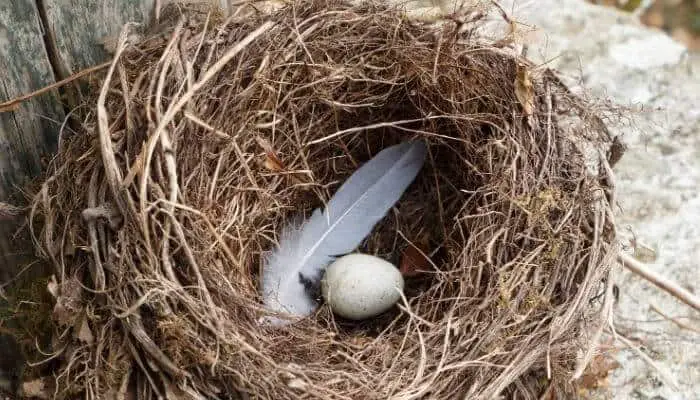
A very stressed bird may even produce odd-shaped eggs.
If you know how often your pigeons mate and how often they lay eggs usually, then any changes in that behaviour may suggest they are stressed.
2. Decreased Appetite in General
It can be difficult to tell which birds are eating more and which are eating less, especially if you have a lot of birds in one place.
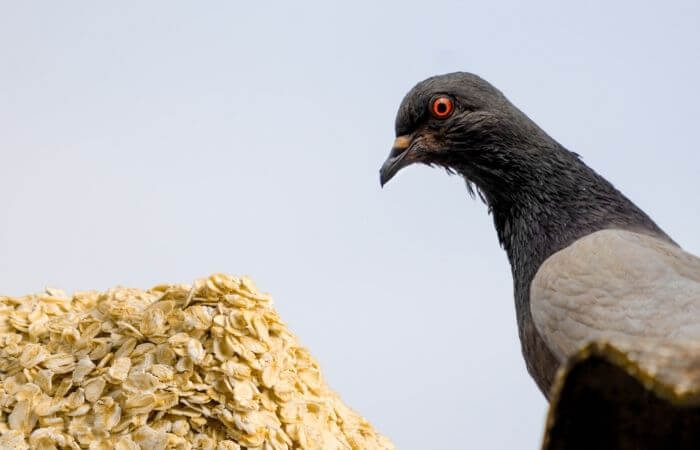
Nevertheless, a common sign that a bird is stressed is that it will not eat as much (or at all).
3. Decreased Vocalisation
This is more common in louder birds, but you may notice your bird is less vocal.
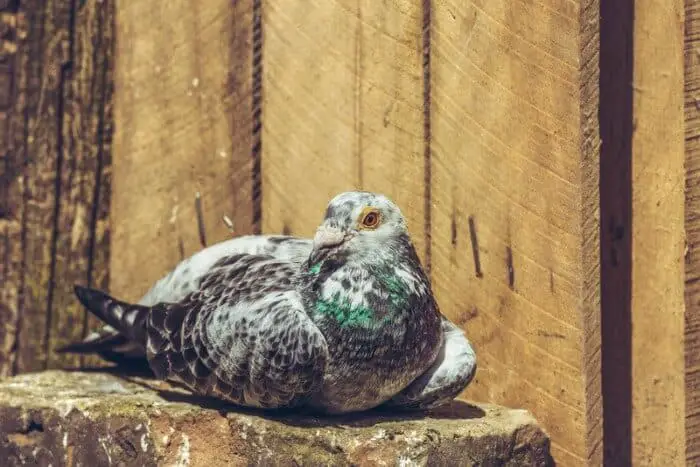
In some cases, you can figure out what is stressing the bird out by noticing when the bird goes all quiet.
You may identify a trigger. For example, it might be when next door’s cat peers at them through an open/wired area of the loft.
4. Self-Mutilation
This comes in all shapes and sizes and is a big problem for owners who love their pigeons.
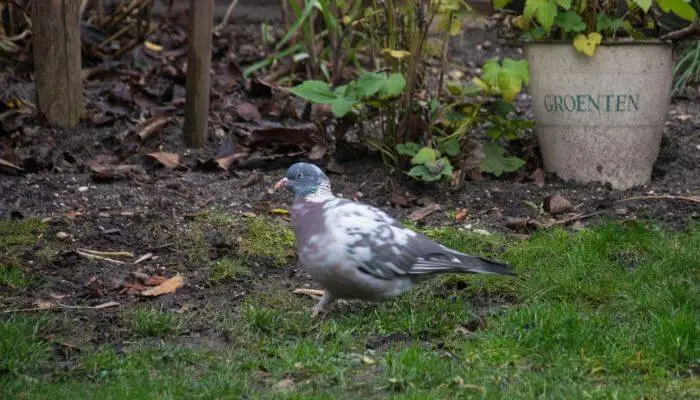
Things like picking at flesh and pulling out feathers are forms of self-mutilation and are big indicators that your birds are stressed.
5. Screaming or Squawking
If your birds are very stressed, such as if somebody has let a cat in the coop, then they will give out warning sounds that usually sound like loud squawks and screams.
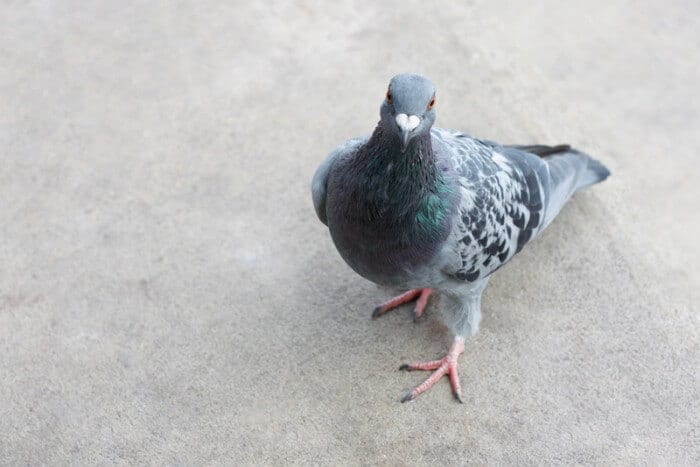
Pigeons are not as good at this noise as other birds, but they will make audible noises when they are stressed out by something like predators.
6. Trying to Bite You
Yes, your feathery friend will try to bite you if it is stressed and/or scared.
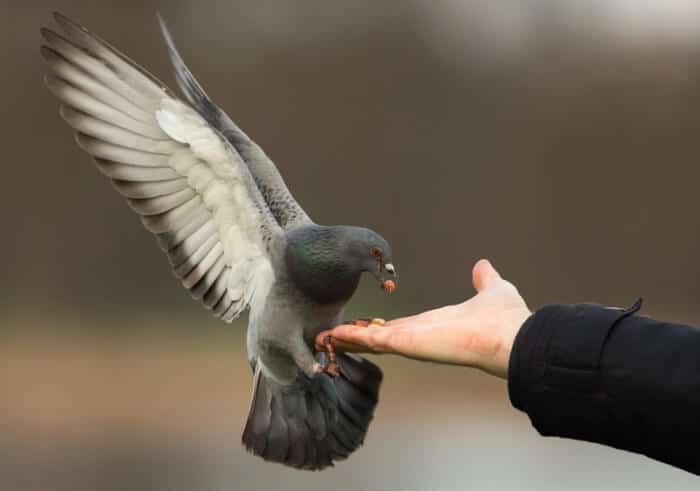
Do not mistake this for an aggressive move, it is just the bird lashing out because it doesn’t have an outlet for its stress.
If the bird doesn’t know you very well, then you may be the thing stressing out the bird.
7. Abnormal Behaviour
If you watch your pigeons, you will notice they have very regular patterns of behavior.
For example, put out seeds on your terrace, and a group of pigeons will always wait for one brave soul to go down there and start eating before the rest arrive.
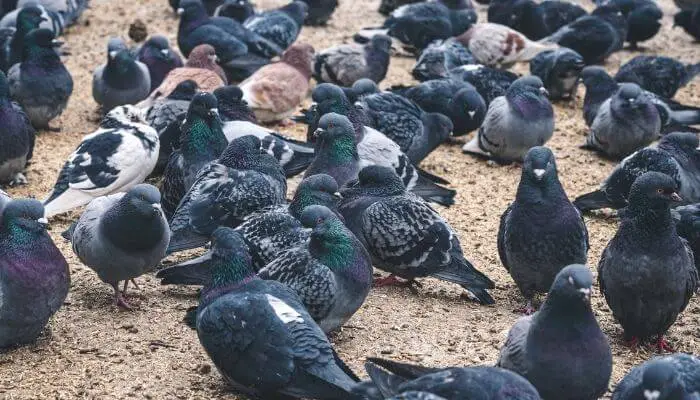
Also, when they are in flocks, the ones who are full will often stand on higher ground and guard the others, keeping an eye out for predators.
Abnormal behaviour can be anything from a normally affectionate/sociable pigeon shying away from you to a change in its metabolism resulting in diarrhoea or a change in poop colour.
Is There Any Treatment for Stress in Pigeons?
As in humans and other creatures, long-term stress will affect your bird’s physical health.
Birds that are constantly stressed and sad may eat less, lose weight or suffer nutritional deficiencies that can lead to a compromised immune system bringing a greater risk of the common pigeon diseases.
In many cases, you are dealing with the other effects of stress, like self-mutilation.
However, if you simply have stressed out birds, then you need to find the source of the stress and put a stop to it.
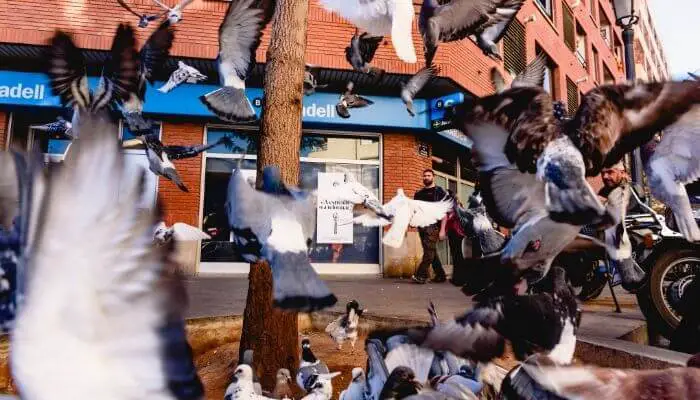
If your birds are stressed because of a change of location, then they will get used to it eventually.
Do not put your birds somewhere else, like indoors, to help them feel safer until you have found the problem.
If you have found the problem and it is location-based, such as if a local car alarm keeps going off, then you may move them.
Your birds may be bored. Pigeons are intelligent so stressed birds may need a distraction.
Try pigeon toys or enable them to be more active (obviously, this depends on the type of loft you keep.)
You may find that if you are unable to pinpoint the cause, assistance from an avian vet or an avian expert can help.
